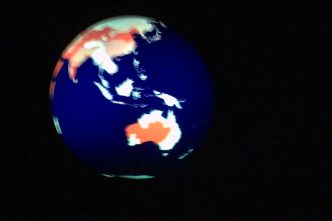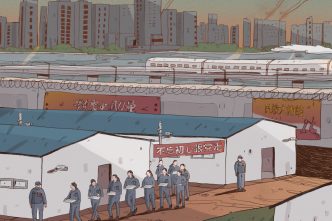The brisk construction of AUKUS—the new Australia–UK–US technology-focused trilateral that made world headlines in September—reflects how much the strategic environment in the Indo-Pacific is changing, and how quickly. Traditional security issues continue to loom large, …
Last week’s surprise AUKUS announcement by the United States, Britain and Australia has created a frenzy of focus on nuclear-powered submarines, but the bigger picture is getting lost in a sea of naval analysis. The …
Something significant sits behind the vital Australia–US military and political alliance: technological cooperation. It gives both a practical and strategic edge to the bilateral relationship. Technology cooperation is a key pillar in the interoperability between …
Australia’s strategic environment is changing rapidly. Once shaped exclusively by traditional security concerns where what mattered most were our military alliances, the state of our armed forces and diplomacy, today’s environment is increasingly shaped by …
In part 1 of this series, we talked about Australia’s rapidly changing strategic environment. In this follow-up, we focus on ways that Australia’s foreign policy funding models should adapt to accommodate to this new environment. …
Australia’s strategic environment has changed dramatically over the past decade. The Indo-Pacific is an increasingly complex place to call home and we must be able to more rapidly reshuffle our limited foreign policy resources towards …
The Covid-19 pandemic has caused unique societal stress as governments worldwide and their citizens have struggled to work together to contain the virus and mitigate its economic impact. This has been a trying time for …
As announced today by Foreign Minister Marise Payne, ASPI will host the Sydney Dialogue—which we aim to make the world’s premier summit for emerging, critical and cyber technologies—in the second half of 2021. This annual …
The first global pandemic of the digital age has accelerated the international adoption of surveillance and public security technologies, normalising new forms of widespread, overt state surveillance. These technologies have been layered on top of …
While the Covid-19 pandemic has damaged economies and profoundly affected people’s health and wellbeing, it has also highlighted our dependence on technology and the extent to which we’ll rely on the next wave of technologies …
On 19 June, Prime Minister Scott Morrison, in concert with Defence Minister Linda Reynolds, announced: ‘Australian organisations are currently being targeted by a sophisticated state-based cyber actor.’ This was occurring ‘across a range of sectors, …
Forced labour and the abusive practices of the ‘re-education camps’ in China’s Xinjiang region are being exported to major factories across the country, implicating both global brands and the hundreds of millions of consumers (including …













